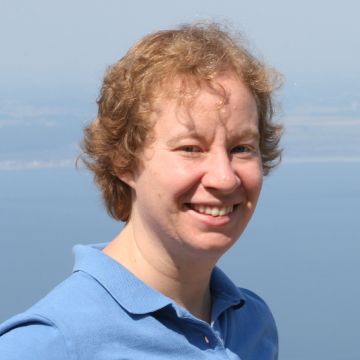Biophysicist studies how cells self-assemble into 3-D spatially organized structures.
 AUSTIN, Texas—Biophysicist Vernita Gordon is the principal investigator on a three-year, $400,000 Young Investigator grant from the Human Frontier Science Program, an international organization funded by the governments of the G7 nations.
AUSTIN, Texas—Biophysicist Vernita Gordon is the principal investigator on a three-year, $400,000 Young Investigator grant from the Human Frontier Science Program, an international organization funded by the governments of the G7 nations.
The grant will enable Gordon and her colleagues (who hail from Scotland, England, and Denmark) to study how cells of the bacterium Pseudomonas aeruginosa self-assemble into 3-D spatially organized structures, and how the different structures impact cooperation within the assembly.
“Intercellular cooperation is one of the most important functional behaviors of multicellular assemblies,” says Gordon, an assistant professor of physics. “It’s also one of the least understood, from an evolutionary perspective.”
In order to explore self-assembly in P. aeruginosa, a human pathogen that readily forms biofilms, Gordon and her colleagues will manipulate the initial cell configuration of their samples and then track how the biofilms form over time.
Gordon says they hope to uncover some of the “design rules” of the bacteria. They’ll explore, for instance, whether certain spatially structured biofilms are more cooperative and more resistant to invasion by “cheats,” which are cells that reap the benefits of cooperation without paying the costs
One long-term goal is use that knowledge to engineer targeted 3D cell assemblies for biotechnological and clinical applications.
“We are very excited to get this grant,” says Gordon, “because it will allow us to combine very different fields of expertise to ask questions, and find answers, that we wouldn't be able to address on our own.”
The Human Frontier Science Program, an international NGO headquartered in France, provides research grants to teams of scientists from different countries who wish to combine their expertise to approach questions that could not be answered by individual laboratories. Emphasis is placed on novel collaborations that bring together scientists from different disciplines to focus on problems in the life sciences.
The Young Investigator grants are given to scientists who are all within 5 years of obtaining their first independent position.


















Comments 1
She's also a great physics teacher -
-